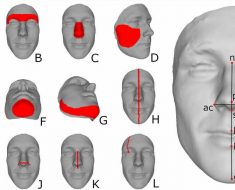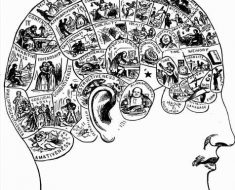Stomach bloating can be passed off as something insignificant, but there are a few cases where it could be indicative of a serious underlying condition. Here are the signs it could be heart failure.
The NHS noted heart failure may have been known as congestive heart failure, but this name isn’t widely used today.
Mostly affecting older people, heart failure means the heart muscle is unable to pump blood around the body effectively.
Heart failure is a long-term condition that tends to gradually get worse over time.
READ MORE
-
 Heart attack symptoms: Pain in the arm can signal the condition
Heart attack symptoms: Pain in the arm can signal the condition
It occurs when then the heart has become weak or stiff, and symptoms can gradually develop over weeks or months, or they may start suddenly.
Aside from a bloated stomach, there are other tell-tale warning signs of the condition.
The top most three common symptoms of the disorder are breathlessness, fatigue and swollen ankles and legs.
Breathlessness can occur at any time, but can appear to be worse when lying down.
EAD MORE: Best supplements for hair loss – the pill proven to promote hair growth

Some people with heart failure may find themselves waking up during the night to catch their breath.
Fatigue is defined as feeling tired most of the day and finding exercise exhausting.
Swollen ankles and legs is caused by a build-up of fluid (called oedema), which may get worse during the day.
Other symptoms include: a persistent cough, which may be worse at night; wheezing; loss of appetite; weight gain or weight loss; and confusion.
DON’T MISS
Best weight loss supplements: The extract proven to burn body weight [STUDY]
Best supplements for brain health: Supplement to increase brain power [RESEARCH]
Best weight loss supplements: The natural extract that burns fat [ANALYSIS]
In addition, some people with heart failure may experience dizziness and fainting.
People with the condition can feel a fast heart rate, or a pounding or fluttering or irregular heartbeat.
There are different stages of heart failure, classified as one to four, depending on how severe the condition is.
A doctor’s diagnosis of heart failure will inform you of the stage you’re at, listed below:
- Class one – you don’t have any symptoms during normal physical activity
- Class two – you’re comfortable at rest, but normal physical activity triggers symptoms
- Class three – you’re comfortable at rest, but minor physical activity triggers symptoms
- Class four – you’re unable to carry out any physical activity without discomfort and may have symptoms even when resting

READ MORE
-
 How to live longer: One drink could slash the risk of heart disease
How to live longer: One drink could slash the risk of heart disease
The Mayo Clinic identifies coronary artery disease and high blood pressure as the culprits behind a weak and stiff heart.
When the heart becomes stiff, the main pumping chambers of the heart stiffen, meaning they don’t fill properly between heart beats.
Typically, heart failure begins with the left ventricle of the heart being affected.
There are various risk factors that contribute to a person’s likelihood of heart failure.

Such risk factors include – as listed above – high blood pressure and coronary heart disease.
Other risk factors include diabetes, sleep apnea, a previous heart attack, and excessive alcohol use and smoking tobacco.
The condition is also more likely to affect people who were born with congenital heart defects.
And certain medications, such as NSAIDs (nonsteroidal anti-inflammatory drugs ) can increase a person’s chances of heart failure.
Source: Read Full Article





